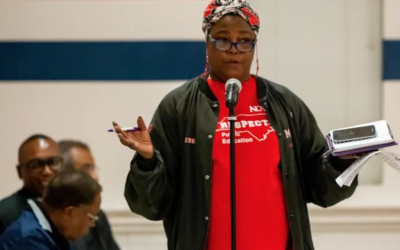WCH In the News
Analysis: South’s Population Growth Can Lead to Prosperity if Local Governments Support Entrepreneurs
Original article courtesy of Daily Yonder.
by James H. Johnson, Jr., Jeanne Milliken Bonds and Wendell M. Davis
November 30, 2022
Multiple Southern states with large rural areas are now popular destinations for both migration and business development.
Newcomers driving population growth constitute an increasingly diverse pool of talent that will propel these economies forward.
In North Carolina, state commerce officials have successfully recruited six major firms that will create an estimated 18,000 new jobs by 2030, earning North Carolina the reputation as the best place in the country to do business. Other Southern states placed in the ranking, including Virginia in third, Texas and Tennessee, fifth and sixth respectively, Georgia at number 10, followed by Florida at number 11.
The South has been attracting the largest share of net population growth in the U.S. over the past five decades (see the graph at the top of this article).
The South is the dominant region for population gain from all regions of the country, with the Western region lagging much further behind, using the latest data from the Census Bureau, April 1, 2020 – July 1, 2021. Significant increases occurred due to increased migration patterns during Covid-19 outbreaks, when pandemic refugees left the larger cities in the Northeast to spread out in the more rural South.
The Southern states’ share of the growth over the past decade, ending in 2020 , is shown in Figure 3, where five top migrant states – Texas, Florida, Georgia, North Carolina, and Virginia – garner 79% of the growth to the South. Those same states ranked in the top 11 best places to do business.
To continue reading, click here.
James H. Johnson, Jr. is William Rand Kenan, Jr. Distinguished Professor of Strategy & Entrepreneurship, Kenan-Flagler Business School, University of North Carolina at Chapel Hill.
Jeanne Milliken Bonds is a Professor of Practice, Impact Investment, and Sustainable Finance, Kenan-Flagler Business School, University of North Carolina at Chapel Hill. She is a former mayor and was previously with the Federal Reserve.
Wendell M. Davis is a retired chief executive officer from local government and former chief financial officer in higher education. He is currently the managing principal and owner of Sixty-Revolutions (SR/365) LLC, a management consulting practice focused on helping organizations develop best practices.
Other News
Leveraging the promise of a green economy to promote racial equity
In North Carolina, the sick-school building syndrome – an estimated $3.1 billion problem – mainly affects children of color who attend aging and rapidly deteriorating schools in both urban and rural low wealth counties.
NC should proceed with caution opening K-12 schools during pandemic
Despite advocacy from government officials and parents alike, we urge caution in the reopening of public schools before the coronavirus pandemic is fully under control. We are especially concerned about the premature re-opening of schools in impoverished and flood-prone environments.
Commentary: Urgently Needed – A Racial Equity Approach to Covid-19 Vaccine Distribution
The coronavirus vaccines have been rolled out unevenly across the U.S., but some states in the Deep South have had particularly dismal inoculation rates made even worse by racial disparities in access to the vaccine.




